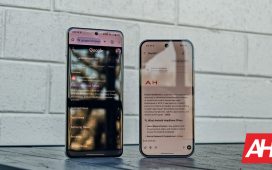Apple is one of the big tech brands that has yet to jump on the foldable smartphone bandwagon. According to reports, the company has been working on devices like iPhones, iPads, and even Macs with flexible displays for a while now. However, the commercial market has yet to receive such a product from the company. A new report claims that the foldable iPhone is still in the planning stage, so you might have to wait a considerable time to see it.
Samsung is a pioneer in implementing foldable displays in smartphones. The company has several generations of Galaxy Z Flip and Z Fold devices behind it, so it already has quite a bit of expertise. Still, others that came later—especially from China—are outpacing it in innovation. Apple is taking its time to launch its first foldable iPhone, but it could achieve a similar effect. The Cupertino giant is not usually the first to implement all the new technologies, but adopting foldable screens is taking it longer than usual.
First foldable iPhone reportedly still in planning stage
Ming-Chi Kuo, a reputable industry analyst, claimed in a Medium post that the foldable iPhone is currently in “the planning stage.” In 2021, the same source was one of the first to say that Apple was working on the device. Back then, Kuo said the product would hit the market in 2025 or later. However, the latest report rules out the possibility of a launch this year—and possibly next year as well.
Still, there are other analysts, such as Jeff Pu, who see a 2026 launch as plausible. On the other hand, TrendForce’s market research projects an announcement in 2027. Either way, don’t expect to see the first foldable iPhone on the market in the any time soon. Both projections emerged before the latest report.
iPhone 17 Air could struggle in China; Apple Intelligence still not generating much interest
Kuo also claims that the foldable iPhone will only support eSIM. The same will apply to the ultra-slim iPhone 17 Air/Slim, which could cause it a setback in the Chinese market. He suggests that Apple should modify the design of the device to support physical SIM cards if it wants to succeed in the Asian country.
Regarding the iPhone 17 Air, it’s possible that even this model won’t help boost iPhone sales in 2025. The analyst projects an 8%-10% drop in iPhone shipments in 2025 compared to last year. The effect of the ultra-slim iPhone won’t be too noticeable on sales “partly due to downgraded components paired with a high price and a user experience similar to current models,” the post says.
Lastly, it seems that Apple Intelligence has not yet brought the boost in interest that Apple had hoped for. The report recalls a survey in which the majority of users did not see much value in AI features. “Apple Intelligence has not increased iPhone replacement demand,” he claims. Apple’s approach to AI is also limited by a local processing approach instead of harnessing the cloud. Currently, the iPhone 16, iPhone 16 Pro, and iPhone 15 Pro series support Apple’s suite of AI-powered features.










